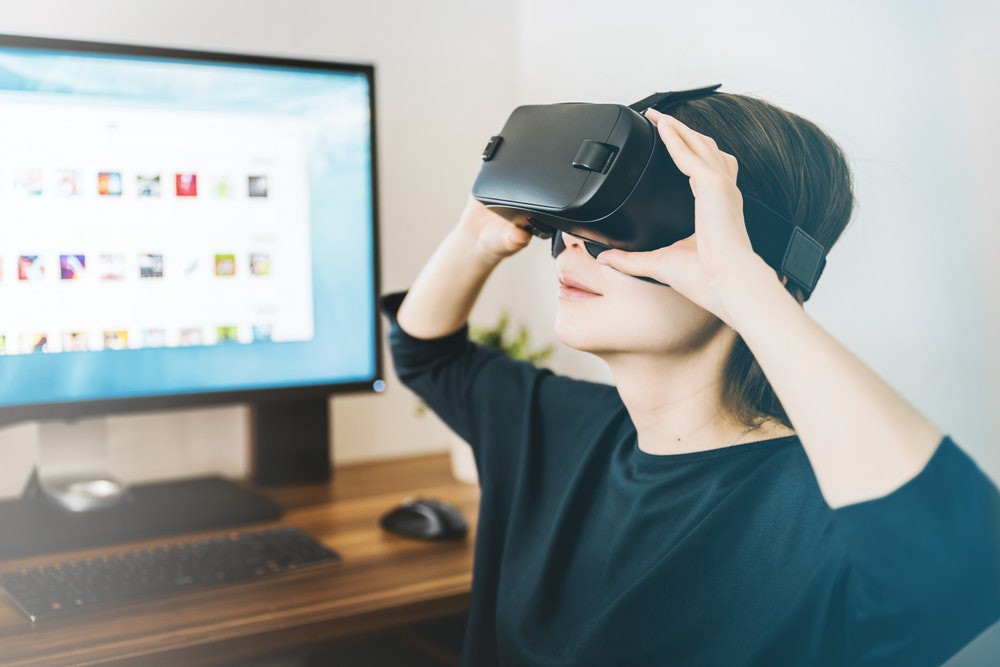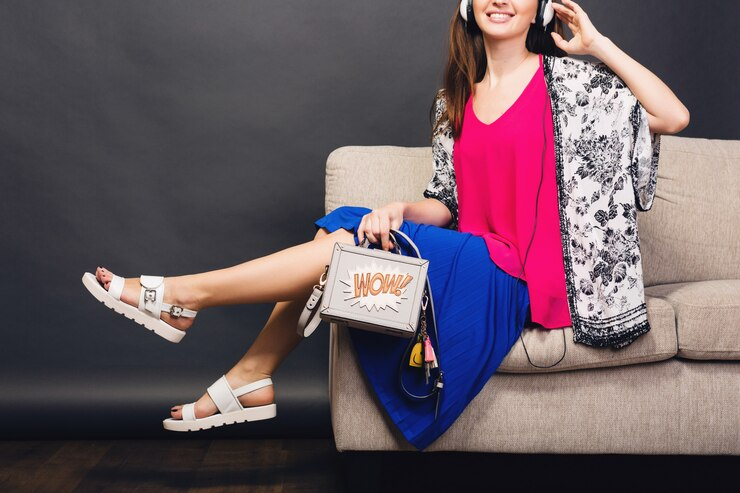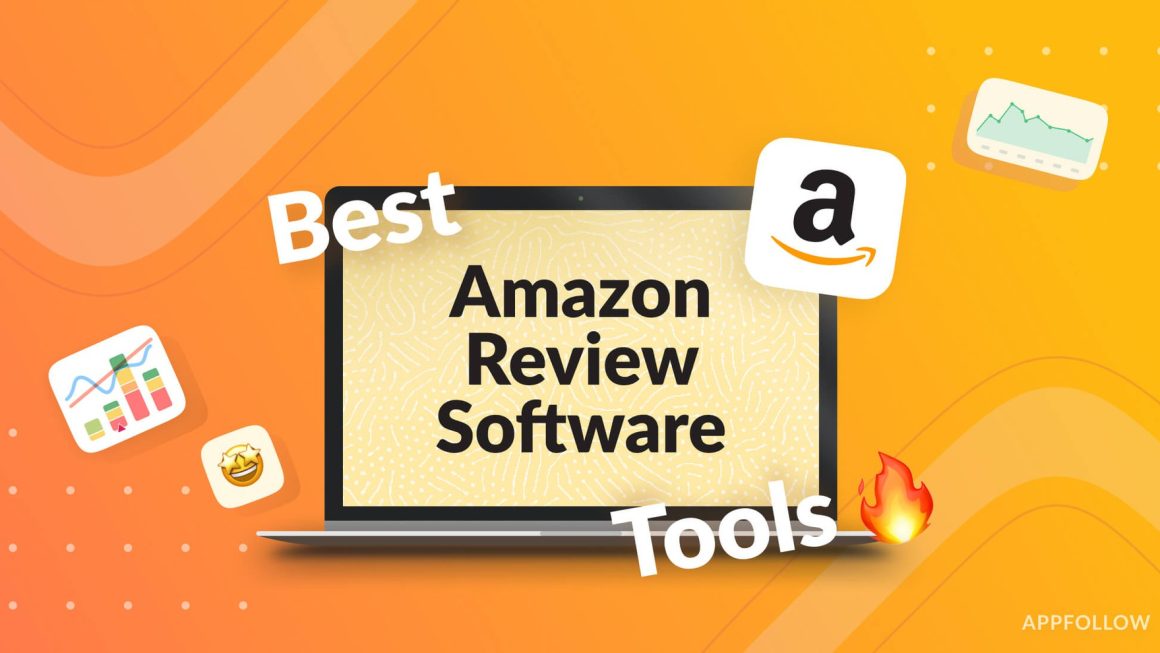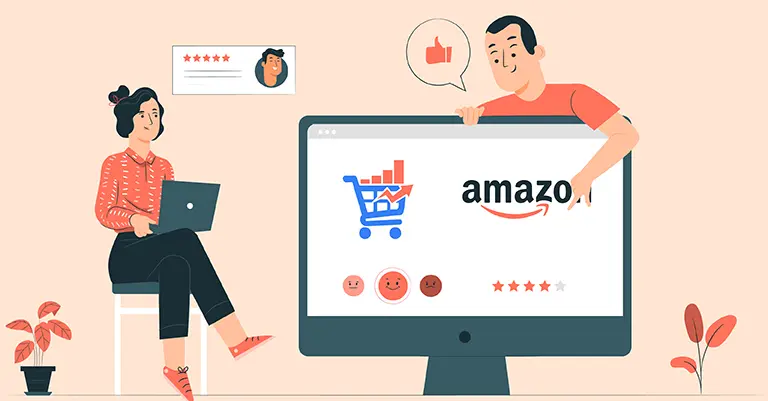Being still new on the market, VR in retail has already attracted a great deal of attention, allowing users to enjoy a digital, real-time retail experience.
According to a report (https://www.accenture.com/us-en/insights/consulting/_acnmedia/Thought-Leadership-Assets/PDF-4/Accenture-Signals-Of-Change-Business-Futures-2021-Report.pdf), technologies like VR in retail have so much to offer that an estimated additional sales growth of US$66 billion is expected with just a one percent increase in retailers employing it. It is because, unlike traditional or online shopping, virtual reality offers an experience free from time and space constraints. Users can feel, try, and experience a product in a 3D space in their ordinary environment and customize it without any risks.
Furthermore, Lori Rothenberg, in a study, explores the influence of virtual reality on customers in comparison to the traditional website experience. The results of the study were surprising, as VR users expressed a higher number of positive emotions and increased perceived store attractiveness.
Why Does Virtual Reality in Retail Have a Strong Appeal?
Effective marketing is all about displaying a strong, appealing message, and VR in retail has the potential to transform traditional online shopping into an innovative experience for customers. Such a promising trend is immediately celebrated in a world where fun and comfort are always in demand.
Though traditional online shopping has freed the user from time and space constraints, is still considered somewhat tedious. Apart from that, users still face a limiting experience regarding verifying the products’ authenticity, features, and real-life usage.
VR in retail provides users a whole new encounter with the retail items where they can feel, handle, and try a product on the comfort of their couch. Thus, each product isn’t limited to just being a display item; instead, it can be fully experienced in a virtual environment.
How Does VR in Retail Enhance Online Shopping Experiences?
Virtual reality in retail services is the gateway to a promising relationship between businesses and their potential clients, profitable investments, and cost management.
First of all, users can better experience products as virtual shopping allows them to place an item in their ordinary environment at home to ensure they are buying valuable products.
Secondly, VR provides a better view of the product, thus, giving users the freedom to fully explore a virtual store, pick items, and examine them in a three-dimensional environment before selecting them for a purchase.
Besides, VR also offers the freedom to personalize and customize products according to the requirements. In the physical world, customization is limited to overwhelming complexity, monotonous revisions, and tricky implementation. But in VR, users can customize a product as much as they want and get a real-time experience of how it looks and feels before spending their money on it.
Brand Reputation and VR in Retail
Traditional online shopping is often limited to small items, and heavy investments are still reserved for an in-store experience. Brands and businesses can use VR in retail to expand their virtual store, including large products as well.
When users can engage with products in a 3D space, they can better visualize and interact with a product, regardless of its complexity and size.
One such example is set by Lexus, offering its potential customers the opportunity to test drive a car while staying inside the showroom.
Thus, this way, brands can ensure their products’ safety while customers can better experience appliances or furniture to their satisfaction without any risks.
VR in Retail Versus Traditional Employees
The success of a brand relies heavily on the professionalism offered by its employees. Whether traditional or online, various factors can negatively impact good customer service, including limited information sharing, risks and damages, and expensive staff training.
VR in retail eliminates the lack of personal touch in the shopping experience as well as makes the workspace safer by allowing users to experience everything in a virtual space.
Thus, brands can save more on heavy employee training and exercise more damage control with the presence of an AI-enabled digital human in a VR environment.
VR in Different Business Lines
Increased conversations, repeated visits, and higher revenue aren’t limited to grocery stores only.
Virtual Reality offers competitive advantages to consumers in other business lines as well, from as obvious as clothing and kitchenware to as complex and elaborate as travel and estate businesses. So, let’s take a closer look at each of them.
VR and clothing brands
Clothing is all about style, and customization is a mandatory step when styling different clothing items.
Online clothing stores have experienced more returns and refund volumes, as customers can’t try apparel as in a traditional boutique. With the virtual reality introduced to clothing lines, users can place their apparel on a holographic to see how certain dresses fit their bodies and go with their overall style.
Furthermore, even in conventional stores, hygiene has many problems stopping customers from trying a dress. VR in clothing retail provides a much cleaner and safer environment where customers can try various options from different stores, brands, and price points.
Thus customizing clothing before buying and testing it in a 3D space has strong appeal in the growing virtual world.
VR and kitchenware
Kitchen tools and appliances are the need of every space, whether house or office. Even if it is just an essential knife, it isn’t possible to try it in an online store.
As for complicated appliances, it is often felt safer to first experience them in a traditional store before investing money. VR in retail has made it easy as now users can experience goods and gadgets in a virtual store. They can move various parts of an appliance and make virtual food using the tool to experience how the machine would work in real life.
VR and travel businesses
The travel industry can flourish under VR since choosing a vacation spot is, undoubtedly, a complicated decision. Often it is based on deep research about the place to stay.
Travel businesses can make the whole process much simpler by offering a virtual experience to their customers. Users are likely to get excited about seeing a virtual room design.
Furthermore, businesses shouldn’t forget the vast amount of money they will save on descriptions, photography, and videography by turning virtual.
VR and real estate businesses
Real estate businesses can also thrive with VR as instead of having frequent visits, potential clients can get a real-time experience of space, including texture, pattern, and lightning at various times of the day.
VR also allows unlimited customization in furniture and design. Users can move from one room to another, experience the view from the balcony, or open the drawers in the kitchen.
Owlab is a software development company. Having deep expertise in niches like fintech, blockchain, retail, healthcare, and more, we gained a long history of satisfied customers and successful projects. We’re excited to take on new projects and provide best-in-class custom software solutions. Just contact us and share your project details.



